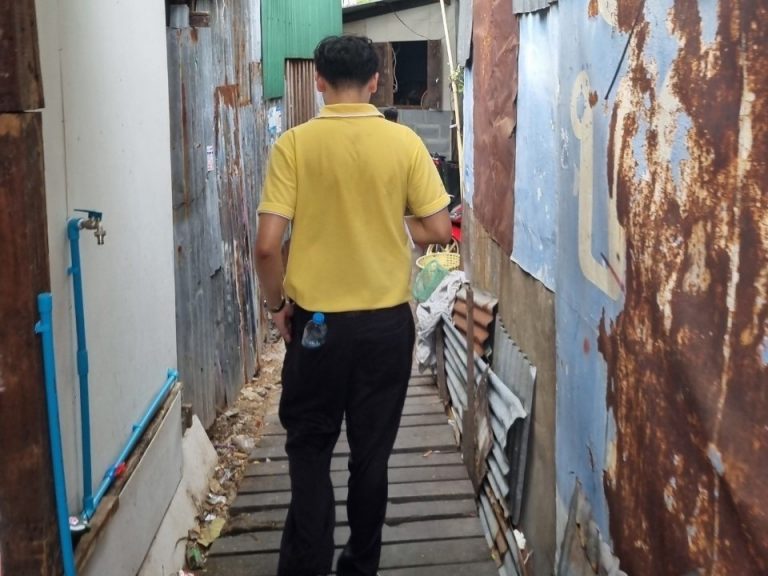Opening the Floor for Parent’s Hearing: A Start of a Sustainable Change
“When I visit my students’ homes, I always ask their parents if they would participate in a parent-community discussion to ensure a good future for their kids. The answer is always a resounding yes,” said 'Kru Bank' – Makawan Pongwachirint, a Teach For Thailand Fellow from cohort 10, currently working at Makkasan Phitthaya School in Bangkok.

“No matter how good the teachers are, students still spend most of their time at home with their parents,” Kru Bank explains.
“If parents prioritize education and career skills, children will develop the mindset to focus on their studies, improve themselves, and become resilient. They will have a positive attitude and clear goals, understanding the importance of attending school.”
Kru Bank’s experience highlights the importance of building strong relationships with parents and involving them in their children’s education.
During his first semester as a teacher, class teachers were assigned to visit all their students’ homes as part of a new policy. Kru Bank devised a method to increase parental involvement during these visits.
“With this opportunity to visit my students and their families, I planned to ask about their attitudes towards their children and the school. So, I prepared some questionnaires for them,” he said.
Apart from the questionnaires, Kru Bank spent 30 minutes with each family to listen to their needs and expectations.
“My frequently used questions were:
- What are the challenges faced by your children and the school?
- In the future, would you like to join if there is an opportunity for a parent gathering to brainstorm a collective vision with the school?
- Do you know what your children want to become in the future?
- What do you want your children to become in the future, and how do you plan to support them?
“I found two types of answers. About 10% of the parents don’t expect much from their children – just for them to be good and graduate.”
“But the remaining 90% expect their children to receive a quality education, pursue higher education, and secure good jobs. This made me understand that despite their context and challenges, many of these parents don’t give up on their children’s future. They still want them to receive a good education, be self-sufficient, and have a degree to help them find a decent career.”
Visiting students’ households allowed Kru Bank to understand parents’ attitudes more clearly and changed his approach to classroom management.
“During my first house visit, I experienced culture shock from the living conditions of many of my students. I reconsidered my teaching methods and decided not to assign homework. Instead, I help my students complete their work at school, so they don’t have an extra workload.”
Although house visits are only an annual assignment, Kru Bank continually seeks opportunities to listen to parents’ needs, starting with past parent meetings.
“I asked if, at the end of the meeting, I could promote a quick questionnaire asking, ‘Compared to before, how do you see your children?’ and ‘What are your expectations for them?’”
“Some of the answers made me realize that the students are improving. For example, some have become more communicative and upfront with their parents.”
A Teaching Fellow serves in schools for only two years, but building a foundation for sustainable change is possible. Kru Bank’s efforts to listen to parents’ needs and expectations have led to collective visions for solving educational problems sustainably and with clear direction.
Join our mission to create sustainable change in Thai education so that one day all children in Thailand can access quality education equitably and choose their future.
Because education is everyone’s responsibility.
Learn more about the Fellowship Program at www.tft.vh-projects.com

